A Brief Guide To Every Stage At The 2019 Tour de France
To make things more exciting this year, organisers went heavy on short, intense days in the mountains.
Despite crowning a worthy champion in Geraint Thomas, last year’s Tour de France faced some criticism for being, well, a bit boring – especially in the first week. It also marked the sixth win in seven tries for Team Sky (now Team Ineos), a fact not lost on organisers.
So in an effort to combat nap-worthy finishes while perhaps “encouraging” another contender to win, this year’s Tour boasts lots of altitude and some interesting stage profiles to create one of the more unorthodox routes in recent memory. As for Ineos, star rider Chris Froome crashed terribly in the Critérium du Dauphiné and will need at least six months to recover. That said, Egan Bernal (who crashed while training for the Giro d’Italia but is back and ready to go) will be a more than adequate replacement.
While the Tour should deliver the excitement it craves, we might have to settle for another win for the British super team after all. Still, surprises could happen. Here’s a look at each stage of the 2019 Tour:
1. Saturday, July 6 – Brussels (Belgium) to Brussels (Belgium) – 194.5K
This year’s Tour starts in Brussels, Belgium, to honor the 50th anniversary of Eddy Merckx’s first Tour victory. The first hour of racing should be fast, as riders will fight over two categorised climbs: the Muur de Geraardsbergen and the Bosberg, both cobbled ascents familiar to fans of the Flemish spring Classics. The race should come back together in the end, with a slightly uphill field sprint that could send the first yellow jersey to a Classics star like Peter Sagan or Greg Van Avermaet.
2. Sunday, July 7 – Brussels-Royal Palace (Belgium) to Brussels-Atomium (Belgium) – 27.6K (TTT)
Stage 2 features an undulating 28K team time trial through Brussels. Even without Froome, this looks like a perfect day for Ineos to begin establishing itself as the team to beat, with defending champ Thomas leading a roster of established rouleurs and time trialists.
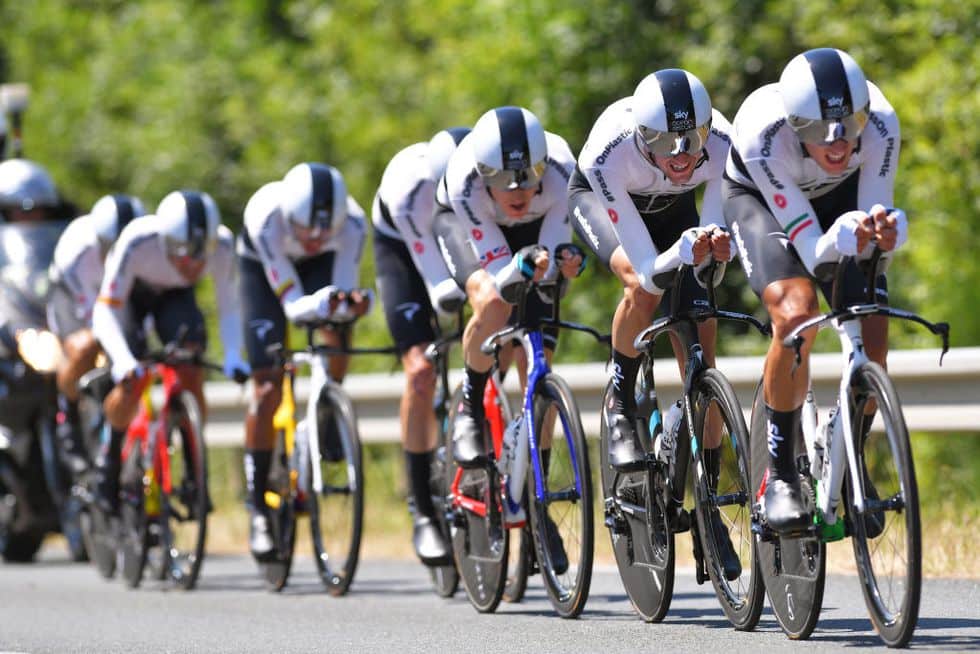
3. Monday, July 8 – Binche (Belgium) to Épernay – 215K
Heading south from the Belgian town of Binche, Stage 3 brings the Tour into France and features a tough ending, with three Category 3 climbs in the final 30K. An uphill finish awaits in Épernay, making this an ideal chance for French star Julian Alaphilippe to shine. Last year’s route was criticised for producing a boring first week; this year’s aims to change that, starting with Stage 3.
4. Tuesday, July 9 – Reims to Nancy – 213.5K
Beginning in Reims, a town known for its famous cathedral, Stage 4 might disappoint pure field sprinters thanks to a Category 4 climb 15K from the finish in Nancy. The summit will also have the day’s Bonus Sprint, meaning time bonuses will be available along with climbing points. If the racing is intense leading up to the climb, expect a more select group to contest the finish, with someone like Sagan or Michael Matthews taking the win.
5. Wednesday, July 10 – Saint-Dié-des-Vosges to Colmar – 169K
Raced through the heart of the Vosges, a mountain range in eastern France, Stage 5 has four categorised climbs – including the first Category 2 climbs of the Tour. Uphills in this region are short but steep, with technical descents (especially when it rains). This stage should go to a breakaway filled with riders looking to grab points in the climbing competition, like Thomas de Gendt, or a select group with Classics stars like Alaphilippe, Sagan, Matthews, and Van Avermaet.
6. Thursday, July 11 – Mulhouse to La Planche des Belles Filles – 157K
In what has become a semi-regular occurrence, the race returns to La Planche des Belles Filles, a difficult summit finish that often makes an early and important impact on the General Classification. This year, organisers made things even harder by adding six more hard climbs to the stage, including the Category 2 Col des Chevrères. If that’s not enough, an extra kilometre on the final climb makes it even steeper than it already was. Simply put, this stage could go a long way toward determining the winner of the 2019 Tour.
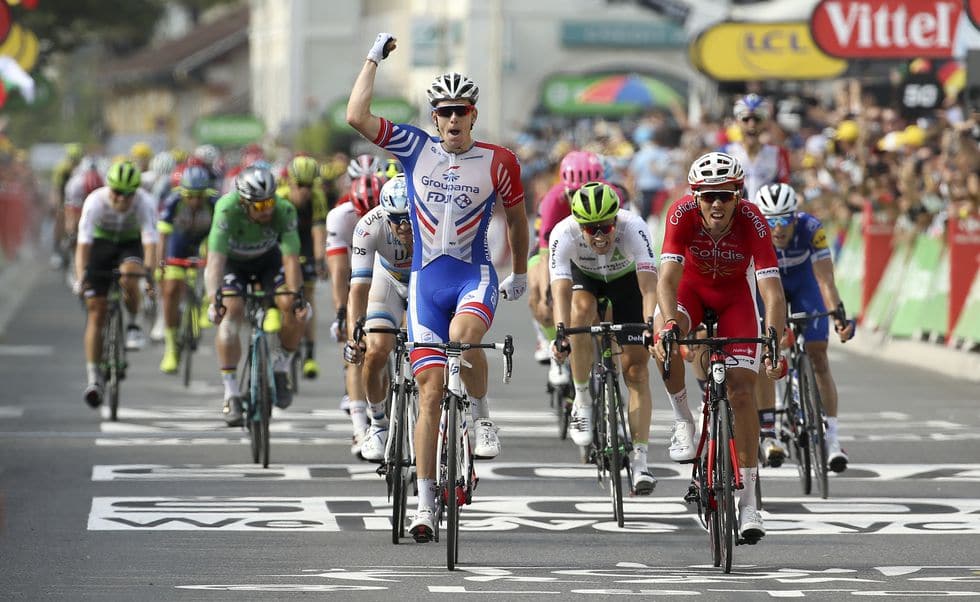
7. Friday, July 12 – Belfort to Chalon-sur-Saône – 230K
After two hard days of climbing, riders will be greeted with the longest stage of the Tour. It starts out lumpy, but the final 100K are pretty much bone flat, likely rewarding sprinters for making it through the Vosges. And they better take advantage: The race heads into central France’s Massif Central over the weekend, which makes this their last chance to win a stage before the first rest day.
8. Saturday, July 13 – Mâcon to Saint-Étienne – 200K
It’s a holiday weekend, which means Tour organisers have something special planned as the race cuts a diagonal across the country toward the Pyrenees. Stage 8 should challenge whichever team is defending the yellow jersey, with a jagged, technical profile featuring seven categorised climbs and a tough finish in Saint-Étienne. Expect a worthy winner, and a surprise attack or two from GC contenders who may have lost some time on the La Planche des Belles Filles.
9. Sunday, July 14 – Saint-Étienne to Brioude – 170.5K
Another challenging day, Stage 9 picks up where Stage 8 left off, with another sawtooth profile and three categorised climbs. It’s Bastille Day, so expect French riders to go on the attack in the hopes of scoring a stage victory in Brioude (the Category 3 Côte de Saint-Just, about 13K from the finish, could provide the perfect launchpad). Stages 8 and 9 both favor Alaphilippe, who won the polka dot jersey in last year’s climbing competition.
10. Monday, July 15 – Saint-Flour to Albi – 217.5K
With Bastille Day falling on a Sunday, most of the country has Monday off. To give the public something to watch, the Tour will continue racing before its first rest day. Another long, challenging stage with an unrelenting profile that will have riders climbing and descending most of the day, it’s another chance for a breakaway. That said, if teams can catch up on the downhill run-in to Albi, a sprinter could take a rare stage win.
11. Wednesday, July 17 – Albi to Toulouse – 167K
A transitional day that brings the Tour closer to the Pyrenees, Stage 11 could give field sprinters a chance to score a victory – if their teams can keep the breakaway in check. But it’ll be hard work, as teams with GC contenders will want their leaders to have a safe and easy ride given the challenges up next. They may let a small group of non-threatening riders go, easing the pressure on the peloton as it makes its way toward Toulouse.
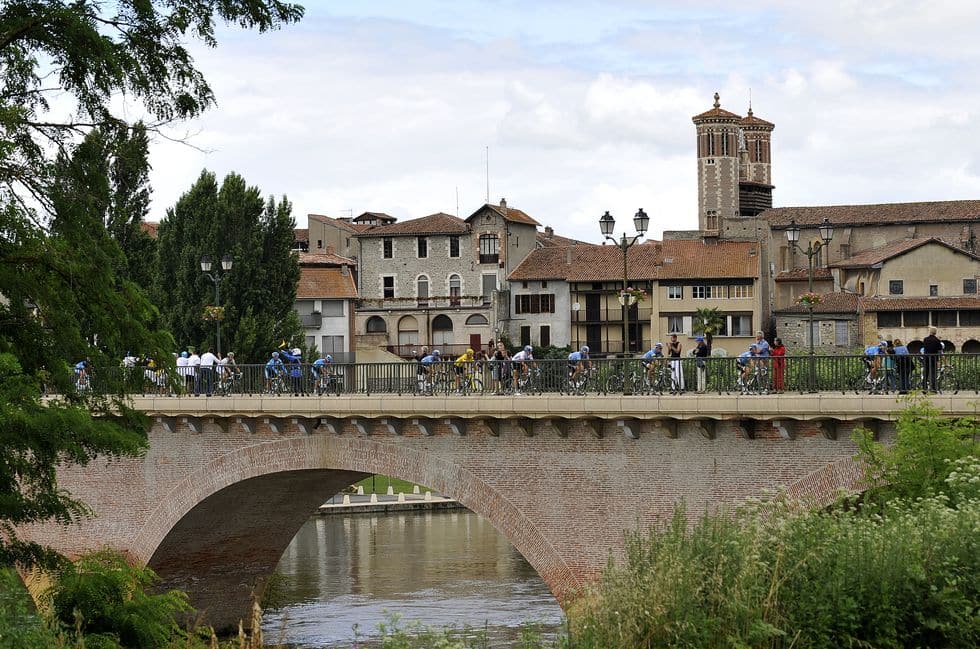
12. Thursday, July 18 – Toulouse to Bagnères-de-Bigorre – 202K
The first of three days in the Pyrenees is also by far the gentlest, with only two Category 1 climbs in the stage’s second half and a long downhill ride from the final summit to the finish in Bagnères-de-Bigorre. With the only individual time trial coming the next day in Pau, followed by two harder days in the mountains, expect a breakaway to enjoy a long leash while the Tour’s heavy hitters save themselves for what’s on the horizon.
13. Friday July 19 – Pau to Pau – 27K (ITT)
In an interesting twist, the Tour’s only individual time trial comes sandwiched between mountain stages, which at least gives climbers a chance to quickly make up whatever time they might lose on this undulating, 27K loop through the countryside south of Pau. On a course like this, Tom Dumoulin – who won last year’s ITT on Stage 20 – could easily put 1-2 minutes into the Tour’s pure climbers, giving him a solid edge heading into the next day’s summit finish.
14. Saturday, July 20 – Tarbes to Col du Tourmalet – 117K
The Col du Tourmalet is one of the most famous climbs in the Pyrenees, but Stage 14 will mark only the third time it’s been used as a summit finish. This is the shortest stage of the race, fitting the recent trend toward short, intense mountain stages designed to encourage attacks. That said, it won’t decide the Tour. There’s a lot of road between the top of the Col du Soulor, the day’s penultimate summit, and the base of the Tourmalet, which means riders will likely wait until the final climb to make their move. So while the battle to the top will be intense, the time gaps might not be so huge.
15. Sunday, July 21 – Limoux to Foix – 185K
Stage 14’s summit finish is getting all the hype, but Stage 15 might prove the hardest and most decisive of the Pyrenean contests, with three Category 1 ascents jammed into the final 75K. Of these, the toughest is the Mur de Péguère, whose final 3K have pitches nearing 20 percent. The summit finish on Prat d’Albis isn’t the hardest of the Tour, but after what riders will have gone through it’ll surely cause some damage, especially if it’s hot.
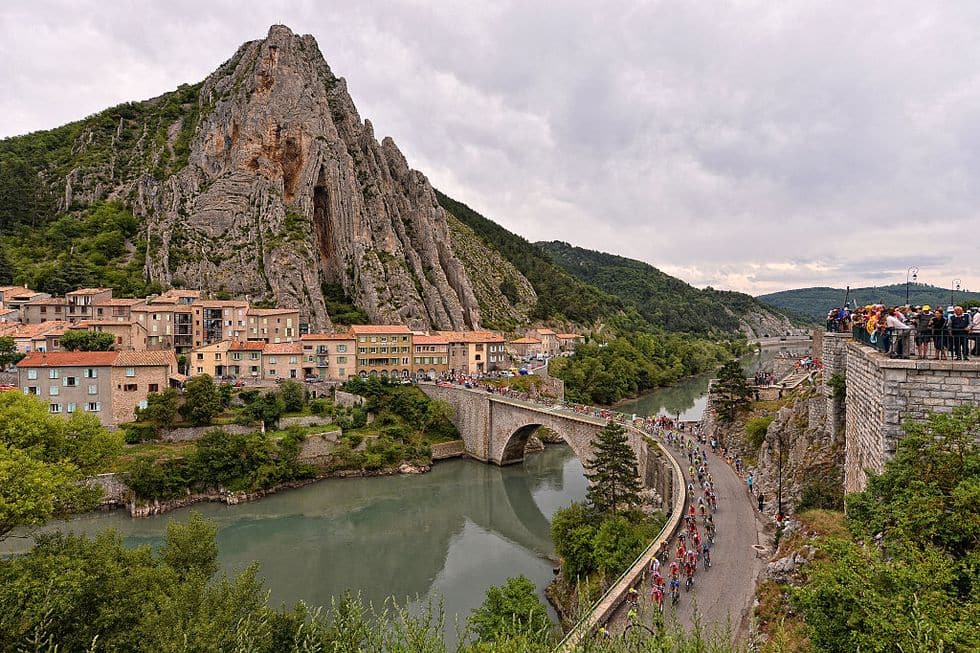
16. Tuesday, July 23 – Nîmes to Nîmes – 177K
Coming out of the second rest day, the Tour throws a bone to the sprinters with a stage that should end in a field sprint. Then again, everyone will be tired by the third week. If there aren’t enough sprinters left in the race (or teams left to work for them), the breakaway could survive all the way back to the finish in Nîmes.
17. Wednesday, July 24 – Pont du Gard to Gap – 200K
Stage 17 takes the race to the foot of the Alps, ending in Gap after a short Category 3 climb and a quick descent into the town below. It’s a great day for someone like Sagan, Matthews, or Van Avermaet, as the climb is not severe enough to force a GC showdown. With three mountain stages up next, this stage could go a long way toward determining who takes home the green jersey as winner of the Points Competition.
18. Thursday, July 25 – Embrun to Valloire – 208K
Stage 18 is an old-school Alpine monster, with three climbs over 2,000 metres – including the Col d’Izoard and the Col du Galibier, two of the highest and most famous Alpine ascents in Tour history. At 208K, it’s also the longest high mountain stage this year, meaning riders will be in the saddle for more than six hours. It’s not a summit finish, but that doesn’t matter: Damage will be done. And this late in the race, it could win someone the Tour.
19. Friday, July 26 – Saint-Jean-de-Maurienne to Tignes – 126.5K
Stage 19 sends riders over the highest climb this year, the 2,770-metre Col de l’Iseran. Much shorter than the day before, this stage will be no less decisive, with three smaller climbs serving as a warmup to the day’s main event: the Iseran and then a summit finish in Tignes. Wind direction between the two will play a key role. If there’s a headwind, riders will be less likely to gamble on the Iseran, fearing they’ll get caught in the valley below. A tailwind will encourage attacks from further out – especially if the rider wearing yellow has a larger lead.
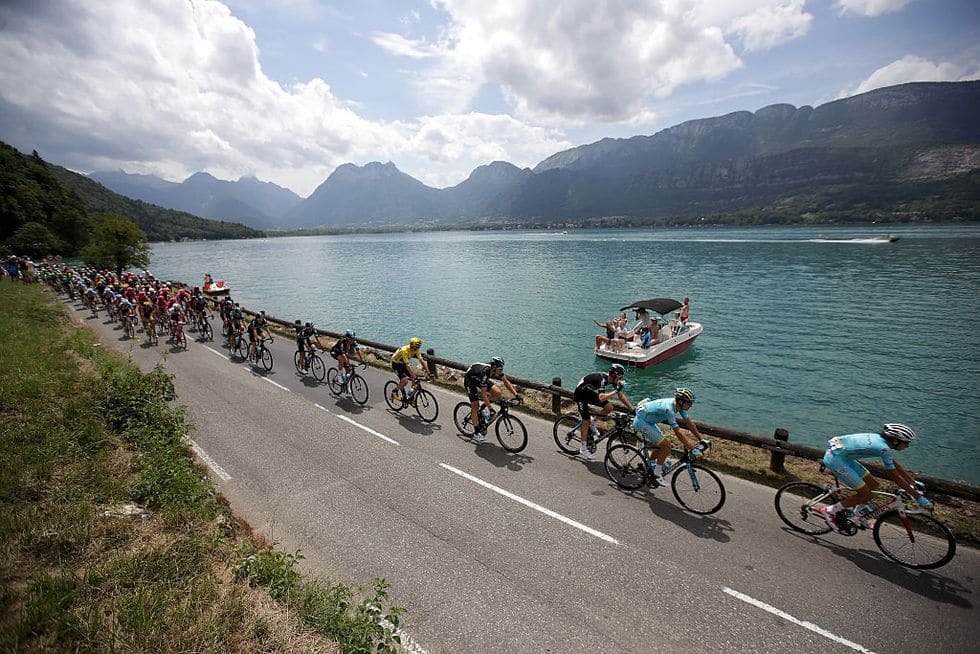
20. Saturday, July 27 – Albertville to Val Thorens – 130K
The third and final day in the Alps closes with the longest climb of the Tour: the 33K ascent to Val Thorens. The road there is long, but not too steep. It’s perfect for a powerful rider who likes to climb seated in his saddle while tapping out a steady rhythm. (Dumoulin, we’re looking at you.) A breakaway could be given a long enough lead to fight for the stage win, but by the time it’s all said and done, we’ll know the champion of the 2019 Tour.
21. Sunday, July 28 – Rambouillet to Paris (Champs-Élysées) – 128K
As it does every year, the 2019 Tour de France will end with eight laps around the Champs-Élysées. The stage starts in Rambouillet with champagne toasts and photo opportunities, but will likely heat up soon after it enters the Parisian finishing circuits. In a Tour of few flat finishes (on paper at least), this is one stage where it’s safe to bet on a bunch sprint.
This article originally appeared on bicycling.com.
READ MORE ON: races Tour de France

